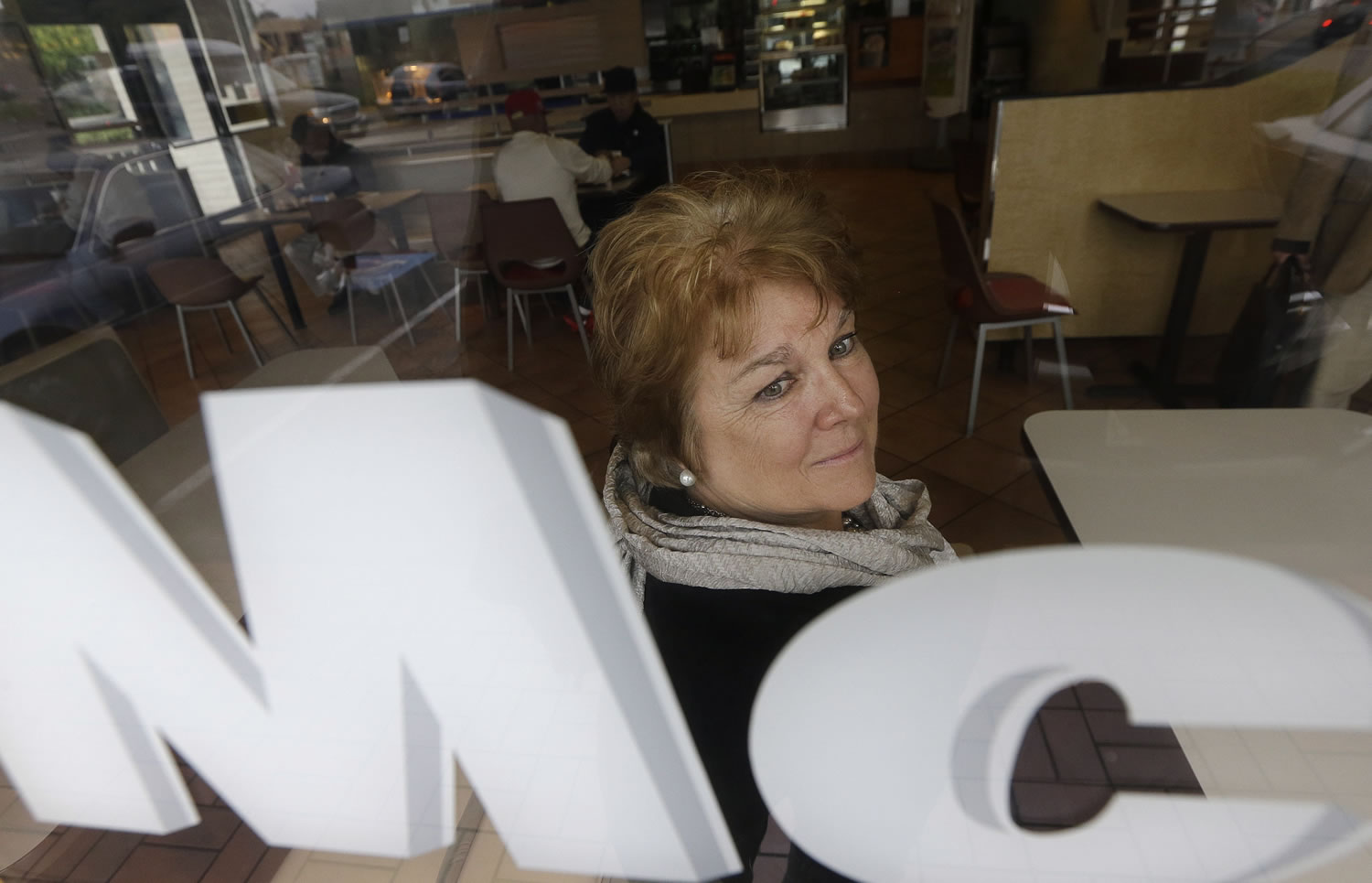NEW YORK — Behind those Big Macs and Whoppers is a hidden drama over corporate control.
The fast-food industry is underpinned by an often tense relationship between companies such as McDonald’s and Burger King and the franchisees who run their restaurants. Few customers think about this when scarfing down burgers.
Around the country, union organizers are pushing to make McDonald’s take responsibility for how workers are treated at its franchised restaurants. And in California, a bill could soon give all franchisees greater protections, including stricter rules on when companies can terminate their agreements.
The moves highlight the tensions in a business model that has long been considered an attractive way to start a business. In exchange for an upfront investment and ongoing fees, aspiring business owners get to capitalize on popular brands people trust. To protect their images, companies dictate terms such as kitchen equipment, worker uniforms and menu offerings.
The problem, franchisee advocates say, is that companies can strip franchisees of their livelihoods for violating any contract terms, even if minor. That can leave franchisees feeling powerless and afraid to speak up.
“It’s scary. People are kowtowed and they’re worried,” said Peter Lagarias, a lawyer in San Rafael, Calif., who represents franchisees.
• GROWING TENSIONS: The California bill would amend a law to require companies to show there was a “substantial and material” breach before terminating a contract. An existing state law allows termination for “good cause,” which can be any violation of the contract.
It would also require companies to give a franchisee back their business or compensate them for its value if a contract was wrongfully terminated. As it stands, companies only have to pay franchisees for store inventory, which would be a fraction of that amount.
Gov. Jerry Brown has not indicated whether he plans to sign the bill, which was passed by California’s senate and assembly. He has until the end of September.
Corporate cultures vary, of course, with some companies exerting more control than others, said Robert Purvin, CEO of the American Association of Franchisees and Dealers in Palm Desert, Calif. At Subway, for instance, franchisees are in charge of buying supplies, so they know the company isn’t marking up prices for cold cuts and lettuce.
Companies also often have advisory councils to give franchisees a voice. Still, there are bound to be disagreements given the nature of the business model. Value menus are a good example.
Franchisers such as Wendy’s get a percentage of restaurant sales no matter what. Franchisees, by contrast, have to think about ingredient costs and worry low prices can eat into their profits. The friction can lead to disputes that land in court.
In 2009, Burger King franchisees sued the company over a $1 double cheeseburger they said they were losing money on. The suit was settled after 3G Capital bought the chain and worked to mend fractured relations with franchisees. The price of the burger has since gone up.
In other cases, franchisees have leeway on corporate decisions.
Don Sniegowski, who runs the franchisee site BlueMauMau.com, recalled a plan by Dunkin’ Donuts two summers ago to sell bananas by cash registers to create a more healthful image. Not all franchisees liked the idea, noting bananas could attract flies and drive up costs. The company went ahead with it anyway.
A Dunkin’ Donuts spokeswoman, Tessa Lueth, declined to say how many locations have adopted the program, but said bananas are seen in “a large and growing number” of stores.
In general, franchisees are better at running restaurants than companies since they have more invested in the business, said Jonathan Maze, editor of Restaurant Finance Monitor.



